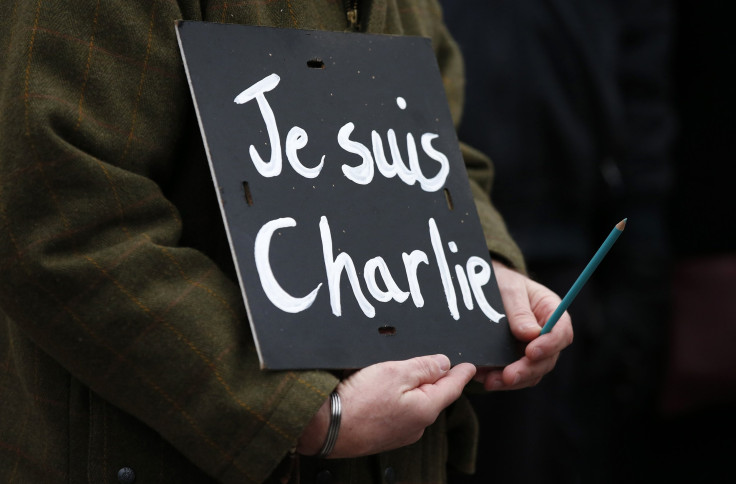From 'Never Forget' To 'Je Suis Charlie,' How The Internet Turns Tragedy Into Solidarity

"Je suis Charlie," the French phrase meaning "I am Charlie," has served to unite people around the world in the wake of the tragic shootings in Paris last week that left 17 dead. The statement of solidarity has spread largely via social media and the Internet, which allow support networks after a tragedy to expand faster and more efficiently.
The shooting has been mentioned more than 4.7 million times, according to Brandwatch. The most popular keywords used by Twitter users were #CharlieHebdo, which had more than 2.85 million mentions, and #JeSuisCharlie, which had more than 2 million mentions. "Je Suis Charlie" goes beyond Twitter as world leaders, cartoonists, athletes, Louis C.K. during his performance at Madison Square Garden, Jon Stewart, "The Simpsons" and celebrities at the Golden Globes have shown their support by using the phrase.

The Paris keywords peaked on Jan. 7 but continued to receive hundreds of thousands of mentions over the next five days. Some responses, such as the one from cartoonist David Pope, have received tens of thousands of retweets.
Can't sleep tonight, thoughts with my French cartooning colleagues, their families and loved ones #CharlieHebdo pic.twitter.com/LqIMRCHPgK
— David Pope (@davpope) January 7, 2015Despite the tragedy, the sentiment on Twitter was overwhelmingly positive. In terms of sentiment on Twitter, there were twice as many positive tweets as negative mentions, according to Brandwatch.
In December, after the news broke of a hostage situation at the Lindt Chocolate Café in Sydney was anti-Muslim in nature; a Twitter user offered her support with a simple hashtag. Sir Tessa said she would ride the bus with anyone who did not feel safe to wear their religious attire in public and used #illridewithyou, which became a trending topic and turned the conversation surrounding the Sydney siege into something positive.
Twitter allows these powerful responses to spread quickly and to a much larger audience than ever before, but the slogans are more than a creation of the Internet. After the Boston Marathon bombing, "Boston Strong" was adopted by the city and the country. The term has a long history, from Livestrong to Army Strong, but it was quickly spread on the Internet, used close to 500,000 times on Twitter in the first six days after the bombing on April 15, 2013, and used more than 2 million times since 2013.
Even before Twitter launched in 2006, people found ways to use the Internet to spread messages of support. After the London subway bombing in 2005, websites like We're Not Afraid and You Will Fail, quoting London Mayor Ken Livingstone's speech after the July 7 bombing, were quickly established. Even before social media, people found ways to share slogans online. "Never forget," now attached to the 9/11 attacks, was originally used in reference to the Holocaust. The phrase was spread on images and gifs online in 2001 and is now incorporated in social media campaigns to honor the 9/11 anniversary.
The strength of #JeSuisCharlie and other tributes on social media is not unique to the tragic events in Paris. Rather it is the latest example of the Internet being used to bring people together. If anything, it shows how powerful a few simple words can be in the face of tragedy.
© Copyright IBTimes 2024. All rights reserved.






















